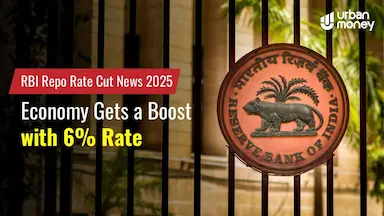- Home
- IFSC Code
IFSC CODE
Locate any details of Bank branch in India.
Enter IFSC Code to know Bank details Verify IFSC
Please enter correct Ifsc Code
IFSC Code - Select Your Bank
- Axis Bank
- Bandhan Bank
- Bank of America
- Bank of Baroda
- Canara Bank
- Central Bank of India
- CITI Bank
- DBS
- Deutsche Bank
- Doha Bank
- Emirates NBD
- Equitas Small Finance Bank
- Federal Bank
- HDFC Bank
- HSBC
- ICICI Bank
- IDBI Bank
- IDFC FIRST Bank
- Indian Overseas Bank
- IndusInd Bank
- Jana Small Finance Bank Ltd
- Kotak Bank
- Mashreq
- Punjab National Bank
- RBL Bank
- South Indian Bank
- State Bank of India
- UCO Bank
- Union Bank of India
- YES Bank
IFSC Code in India
What is IFSC Code?
The IFSC Code also known as IFSC or the Indian Financial System Code is a unique alphanumeric code sequence assigned to bank branches engaged in the three major settlement payment systems in India, i.e., the NEFTs, RTGS and IMPS. This numeric sequence is instrumental in smoothening the e-transfer of funds across financial institutions within the country.
IFSC Code Features and Benefits
The features of IFSC Codes are as follows:
- Particular bank branches are assigned distinctive IFSCs for accuracy.
- Quickens the process of online fund transfer.
- Instrumental in the execution of varied payment types, such as NEFT, RTGS and IMPS.
- IFSC enables tracking-friendly operations for efficient management.
- Ensures highly secured transactions with an overall evident reduction in errors and discrepancies.
Customers with their bank IFSC can be assured of accurate payment transfers to and from their accounts as IFSCs play a crucial role in channeling transfers. This is possible because each bank branch is tagged with a distinctive IFSC Code which further assists parties with documented SMS for transparent communication. Also, it enables customers to perform online transactions fast from the comfort of their homes and indirectly promotes digital India’s vision of paperless/cashless transactions.
The Function of a Bank's IFSC Code
IFSC Code, which enables transactions within the territory of India, has a brief and well-defined functionality in the whole transaction process. We know that every major bank in India has thousands of branches across the country. And to transfer funds to any of these branches demands accuracy and security, both of which are ensured to perfection by the IFSC code.
- One of the major functions of an IFSC code is to act as a reference for the senders.
- IFSC Codes along with the receiver's bank account will act as a two-way authentication system ensuring that the funds are transferred to the correct account in the correct branch. IFSCs are very similar to pincodes of a region.
- Indian Financial System Codes assists in easy NEFT, RTGS and IMPS transactions.
How to Find IFSC Code?
Generally, an IFSC code can be found on bank cheques, official websites of banks and the RBI website. However, It could be a little tricky to search through websites or cheques, but users can simply bypass these efforts by using the Urban Money IFSC Finder. It is a simple online tool that will provide users with any bank’s IFSC. Users who wish to search banks by IFSC Code may also do so by feeding the IFSC Code in the tool. This will generate the bank branch name, address and other details.
Use of IFSC Code for Net Banking
Net Banking or online banking enables parties to send and receive funds electronically without the need to visit any bank. There are quite a few ways in which one can make use of the Net Banking tool. This includes National Electronic Funds Transfer (NEFT), Real Time Gross Settlement (RTGS), Immediate Payment System (IMPS), etc. Whatever the case may be, the use of an Indian Financial System Code is imperative as it is important to pin the payment to the correct endpoint.
In case of a transfer, users have to log in to their Net Banking account and in the fund transfer section, they need to select the type of payment they want to make like NEFT, REGS, IMPS, etc. Senders will have to add a fund beneficiary. Enter in the details, such as Name, Account Number, Bank Name and IFSC Code. The IFSC code will help the system narrow down the branch of the bank.
What is MICR Code?
An MICR Code, short form for Magnetic Ink Character Recognition, is a tool that uses the technology to read and interpret an encoded text allotted to a specific bank branch. Its primary functionality includes hassle-free and efficient clearance of cheques and vouchers. Furthermore, the MICR Code also assists in identifying Electronic Clearing System (ECS)-friendly bank branches. Generally, MICR Code can be found printed on a bank cheque.
MICR Code Features and Benefits
There are indeed a few layers of benefits and advantages of the MICR technology.
- The MICR code is legit fast and ensures a smooth process. With the help of MICR, banks process numerous cheques on a daily basis.
- MICR is also of great importance when it comes to security. The printed characters on the cheques are inscribed with a special ink making them extremely difficult to forge.
- With the help of MICR Codes, one can ensure accurate transactions. This is due to the construction of characters which involves unique combinations. This makes it efficient to channel funds to the right destination.
Top Banks with IFSC and MICR Code
The table below showcases some of the top banks with a massive number of branches that made it imperative to allot an IFSC code and MICR code to each branch.
| S. No. | Bank Name | Details |
| 1. | HDFC Bank |
|
| 2. | SBI Bank |
|
| 3. | ICICI Bank |
|
| 4. | Axis Bank |
|
| 5. | Kotak Mahindra Bank |
|
| 6. | IndusInd Bank |
|
| 7. | Yes Bank |
|
| 8. | Punjab National Bank |
|
| 9. | Bank of Baroda |
|
Difference Between IFSC and MICR Code
| S. No. | Bank Name | Details |
| 1. | IFSC or the Indian Financial System Code is an 11-digit alphanumeric sequence that is unique to bank branches. | MICR Code or Magnetic Ink Character Recognition Code is a 9-digit encrypted code that is meant to smoothen the process of cheque and voucher clearance. |
| 2. | IFSC is used to execute online money transfers across banks within India without any issues. | MICR Code is meant to make clearance of cheques and other documents smoother and faster. |
| 3. | IFSC contains a code for the bank name and code for the branch assigned by the Reserve Bank of India. Also, it contains a “0” kept for future use. | MICR Code contains a code representing the city code, a code representing the bank name, and a code representing the branch. |
| 3. | With IFSC, one can execute payments based on NEFT, RTGS, and IMPS. | With MICR Code, one can execute payments based on cheques or vouchers. |
| 3. | IFSC usage is meant for electronic transfer of payments. | MICR Code is meant for decryption of codes printed on the cheques, vouchers, and other documents. |
Where to Find IFSC or MICR Code on a Bank Cheque?
Information like IFSC and MICR Code are very much part of a bank cheque layout. If one needs to find out the IFSC and MICR code of their bank branch, they can locate so in a cheque book issued by their bank.
Find Indian Financial System Code (IFSC Code)
You will find the IFSC code on a bank cheque at the top section of the cheque leaf. This Code will be given along with the address of the branch of the bank. Users will be able to easily locate it as they are generally titled and specified.
Find Magnetic Ink Character Recognition (MICR Code)
The MICR code (Magnetic Ink Character Recognition Code) is printed in a special font on the bottom strip of a bank cheque leaf. The MICR code is given along with other information, such as cheque number, account ID and transaction code. The MICR Code is created with a font known as E13B which is identified by MICR Code scanner.
FAQs
From refinancing to reducing your interest, we have the answers right here.
Why is IFSC required for a fund transfer?
A fund transfer needs to reach the recipient’s bank account with accuracy. The IFSC code comes off as a wedge between the sender and the receiver’s bank branch. With the help of the IFSC Code, the sender can accurately pick on the receiver and channel the funds toward the recipient.
What happens if we use the wrong IFSC code?
Mostly the chances are that the transaction is reverted due to miscommunication or mismatch of information. However, if there is a bank account existing within the wrong IFSC, the amount transferred is completed to that incorrect account.
If a bank branch is changed, will the IFSC code change?
Bank branch IFSC code stops being valid if any branch is merged with another major bank. However, the account holder’s details still remain the same.
How can I transfer money from one bank to another using IFSC Code?
To transfer funds from one bank to another, the sender needs to provide the bank account number of the receiver and the IFSC Code of the receiver’s bank branch they have an account in. The IFSC and the account number both narrow down the destination where funds need to be reached.
Is a bank account unique for a unique IFSC code?
No, the bank accounts and IFSC codes are not related. IFSC codes are assigned to a specific branch of a bank. However, two different banks can have the same account number. Bank account numbers are only unique within the same bank. Thus, it is important to correctly submit the account number and IFSC for executing the correct transaction.
Can I use IFSC instead of Swift code?
No, IFSC codes are used for electronic transactions within a country. However, if one needs to make a transfer to someone from another country, they will be required to provide a SWIFT code instead.
How many digits are in the IFSC code?
An IFSC code or Indian Financial System Code comprises 11 digits of alphanumeric code sequence. This includes a code for the bank and a code for the branch along with a default “0” reserved for future usage. The breakdown of an IFSC code looks like this: XXXX - Code for Bank, 0 - default, YYYYYY - code for the particular branch of the bank.
How to find the IFSC code from the account number?
An IFSC Code can be located via an account number by going through the cheque book or the pass book issued by the bank. You can find the IFSC code on the top of the leaf along with the address of the bank. On a passbook, you can locate the IFSC code in the front page along with your basic details.
Get your latest Credit Score, FREE
Quick Links
EMI Calculator
Eligibility Calculator
Top 10 Banks
Investment Options
Gold & Silver Rate
Home Loan By Other Banks
- Bank of Baroda Home Loan
- Axis Bank Home Loan
- HDFC Bank Home Loan
- ICICI Bank Home Loan
- Bajaj Finserv Home Loan
- IndiaBulls Home Loan
- Canara Bank Home Loan
- Union Bank of India Home Loan
- DHFL Home Loan
- CITI Bank Home Loan
- YES Bank Home Loan
- Federal Bank Home Loan
- IndusInd Bank Home Loan
- State Bank of India Home Loan
- Hero FinCorp Home Loan
- Punjab National Bank Home Loan
- IDFC FIRST Bank Home Loan
- IDBI Bank Home Loan
- Kotak Bank Home Loan
- Fullerton India Home Loan
- Reliance Capital Home Loan
- Ujjivan Small Finance Bank Home Loan
- Muthoot Finance Ltd Home Loan
- Godrej Housing Finance Home Loan
- Tata Capital Housing Finance Limited Home Loan
- Vastu Housing Finance Home Loan
- HDFC Sales Home Loan
- Indian bank Home Loan
- Capital First Ltd. Home Loan
- Home First Finance Company Home Loan
- Poonawalla Fincorp Limited Home Loan
- Hero Housing Finance Home Loan
- Clix Capital Home Loan
- Aditya Birla Finance Limited Home Loan
- Housing Development Finance Corporation Home Loan
- L&T Finance Home Loan
- HSBC Home Loan
- LIC Housing Finance Home Loan
- IIFL Finance Home Loan
- Piramal Housing Finance Home Loan
- Edelweiss Financial Services Home Loan
- Bank of India Home Loan
- Aadhar housing Finance Home Loan
- DCB Bank Home Loan
- Punjab National Bank Housing Finance Home Loan
- Capri Global Home Loan
- Punjab & Sind Bank Home Loan
- Bank of Maharashtra Home Loan
- karnataka bank Home Loan
- karur Vysya Bank Home Loan
- RBL Bank Home Loan
- Cholamandalam Finance Home Loan
- Deutsche Bank Home Loan
Personal Loan By Other Banks
- Bank of Baroda Personal Loan
- Axis Bank Personal Loan
- HDFC Bank Personal Loan
- ICICI Bank Personal Loan
- Bajaj Finserv Personal Loan
- IndiaBulls Personal Loan
- Canara Bank Personal Loan
- Union Bank of India Personal Loan
- DHFL Personal Loan
- CITI Bank Personal Loan
- YES Bank Personal Loan
- Federal Bank Personal Loan
- IndusInd Bank Personal Loan
- State Bank of India Personal Loan
- Hero FinCorp Personal Loan
- Punjab National Bank Personal Loan
- IDFC FIRST Bank Personal Loan
- IDBI Bank Personal Loan
- Kotak Bank Personal Loan
- Fullerton India Personal Loan
- Reliance Capital Personal Loan
- MoneyWide Personal Loan
- Ujjivan Small Finance Bank Personal Loan
- Muthoot Finance Ltd Personal Loan
- Shriram Urban Co Operative Bank Limited Personal Loan
- Tata Capital Housing Finance Limited Personal Loan
- HDFC Sales Personal Loan
- Indian bank Personal Loan
- Capital First Ltd. Personal Loan
- Poonawalla Fincorp Limited Personal Loan
- Tata Capital Financial Services LTD Personal Loan
- Clix Capital Personal Loan
- Aditya Birla Finance Limited Personal Loan
- L&T Finance Personal Loan
- HSBC Personal Loan
- Loantap Credit Products Private Limited Personal Loan
- PaySense Personal Loan
- IIFL Finance Personal Loan
- InCred Financial Services Personal Loan
- Piramal Housing Finance Personal Loan
- Edelweiss Financial Services Personal Loan
- Bank of India Personal Loan
- DCB Bank Personal Loan
- Punjab & Sind Bank Personal Loan
- Bank of Maharashtra Personal Loan
- karnataka bank Personal Loan
- AU Small Finance Bank Personal Loan
- karur Vysya Bank Personal Loan
- RBL Bank Personal Loan
- FT Cash Personal Loan
- Privo Personal Loan
- Prefr Personal Loan
- CASHe Personal Loan
- Deutsche Bank Personal Loan
Guide
Get in-depth knowledge about all things related to and your finances

RBI Slashes Repo Rate to 6% in April 2025 Amid Global Uncertainty
In a much-anticipated move, the Reserve Bank of India (RBI) announced a 25 basis point rate cut, bringing the key lending rate down from 6.25% to 6%. The decision, unveiled on 9 April 2025, marks the

Cost to Company (CTC)
When considering a job offer, it's easy to become fixated on the attractive "CTC" figure. But there's more to this figure than strikes the eye. Realising the value of CTC requires going beyond its ini

EMI: Meaning, How It Works, Calculation Method, Benefits & Drawbacks
EMIs have become one of the most common forms of payment for any financial obligation, from college fees to purchasing a new phone. This fixed monthly amount saves lakhs of citizens annually by preven